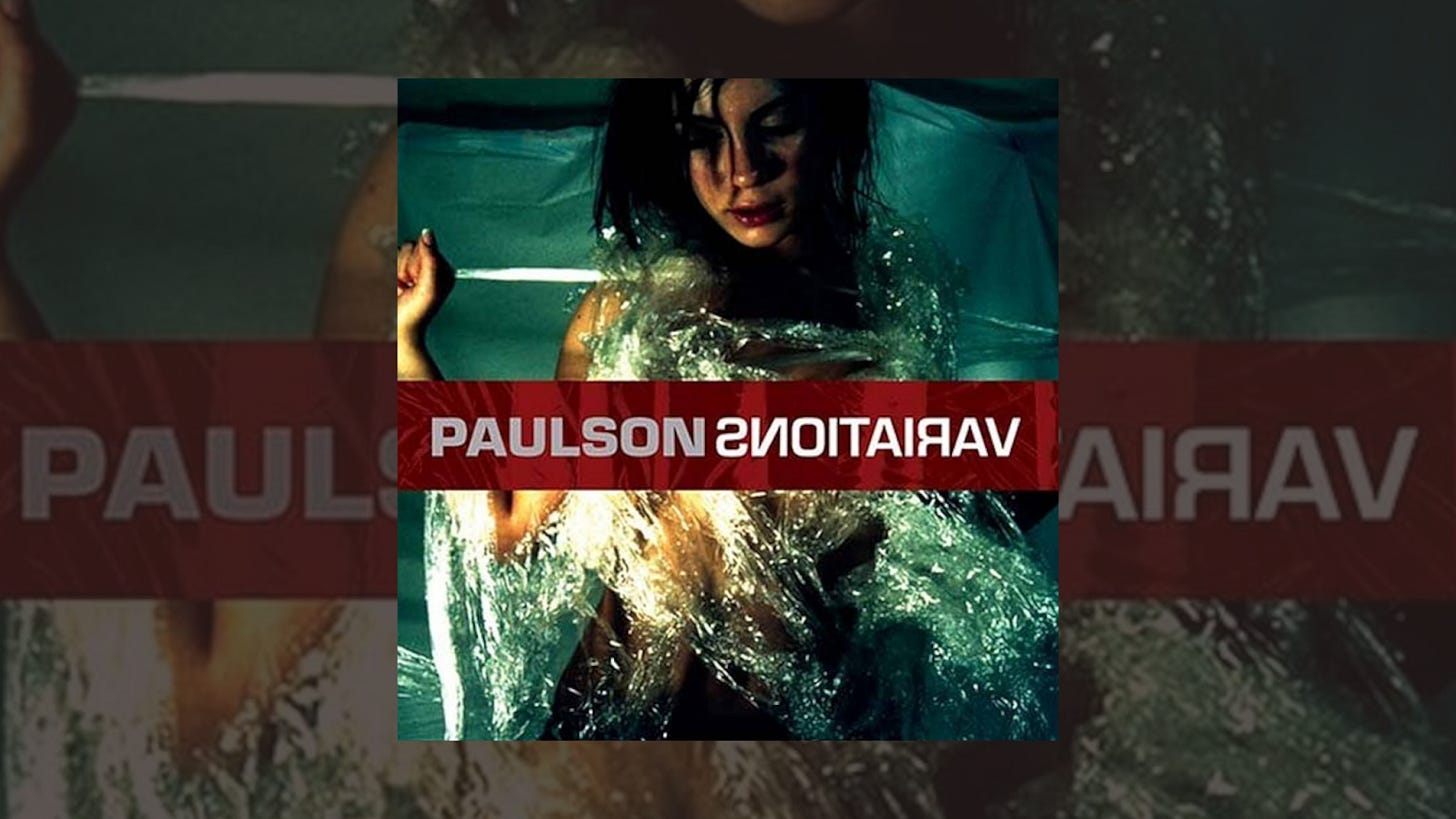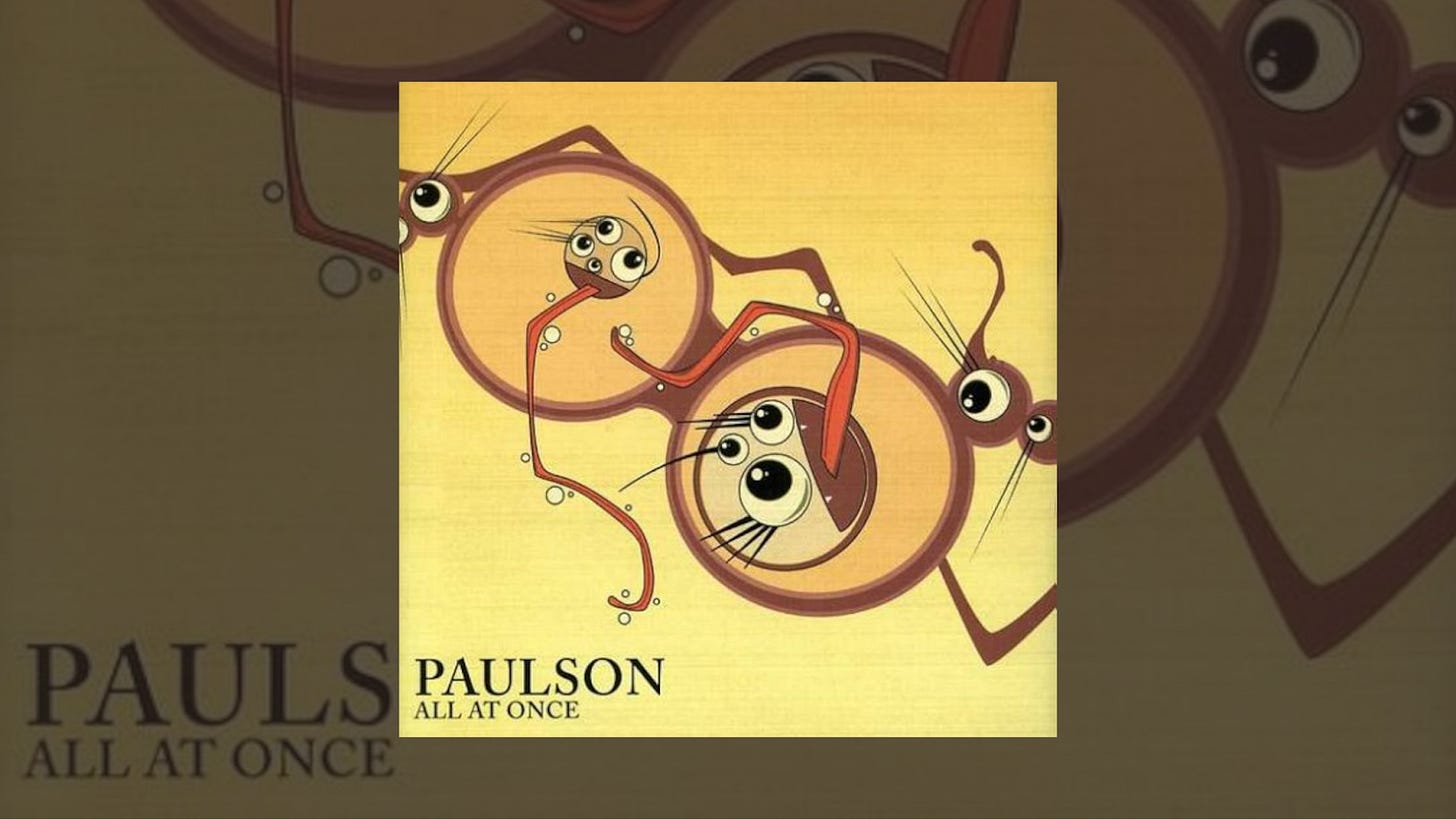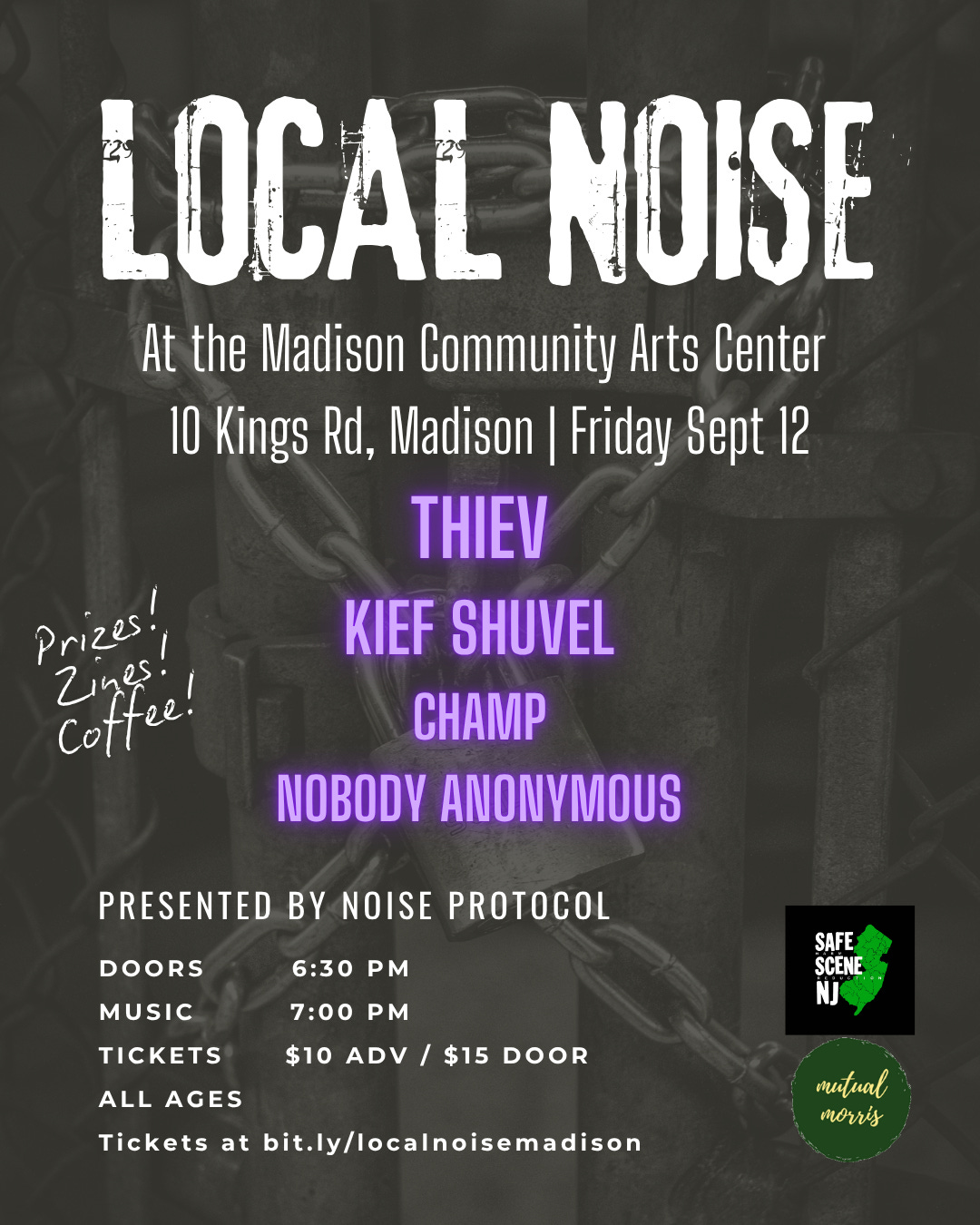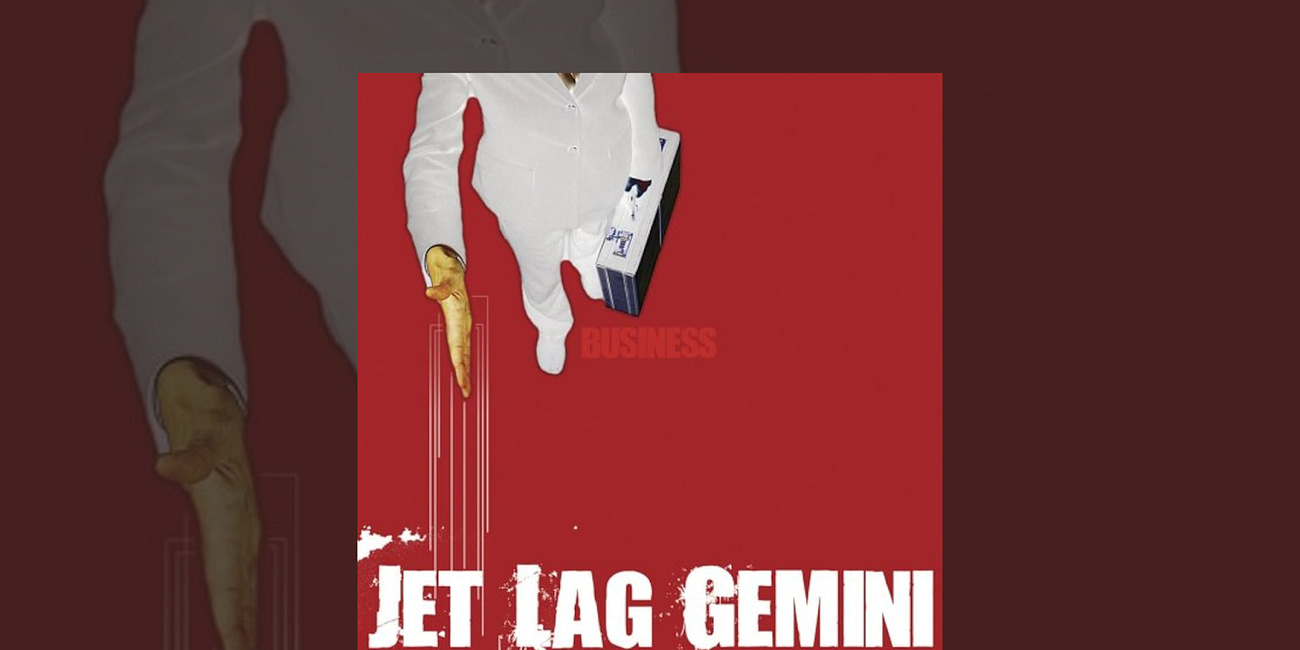In June 2024, the air at Crossroads in Garwood, NJ, was heavy with anticipation as Paulson, a cornerstone of the mid-2000s emo/post-hardcore scene, reunited after 12 years to share the stage with lifelong friends and NJHC giants Folly. Fans packed the dimly lit venue, many wearing the same tees purchased on tours decades prior, now faded, their voices roaring along to songs that defined their youth. The band’s return was a testament to enduring friendships, a shared love for music, and the unexpected devotion of fans who still sport 20-year-old Paulson shirts.
Bassist Alex Burton and I talked about their reunion, Paulson’s journey, and the heartbeat of the Northern NJ scene that shaped them.
From Basements to Breakout: Paulson’s History
Formed in 2001 in Midland Park, NJ, Paulson emerged from the fertile ground of the early 2000s North Jersey music scene, where screamo, emo, and post-hardcore collided in sweaty basements and VFW halls. “It was an amazing time for music, and an amazing time to be a kid trying to make music with your friends,” reflected Alex. The band—vocalist/guitarist Logan Laflotte, drummer Jeff Widner, keyboardist Mike Smeen, guitarist Jesse Burton, and bassist Alex—blended raw emotion with indie flourishes, drawing from influences like Radiohead, LCD Soundsystem, and The Get Up Kids.
Today, Alex’s personal listening also includes Waxahatchee, The Cure, the Yeah Yeah Yeahs, and Fontaines D.C., “there’s just so much good stuff coming out,” he said.
After a 2002 EP titled Ridiculous/Engine, their 2004 full length debut, Variations, captured the chaotic energy of the era, followed by the more polished All at Once in 2005, leading to tours with acts like The Starting Line, #12 Looks Like You, The Sleeping, Straylight Run, Maylene and the Sons of Disaster, and many others across genres. Despite critical praise and a cult following, “people used to say we were a ‘band’s band’,” Alex said, Paulson disbanded in 2012 as members pursued other paths.
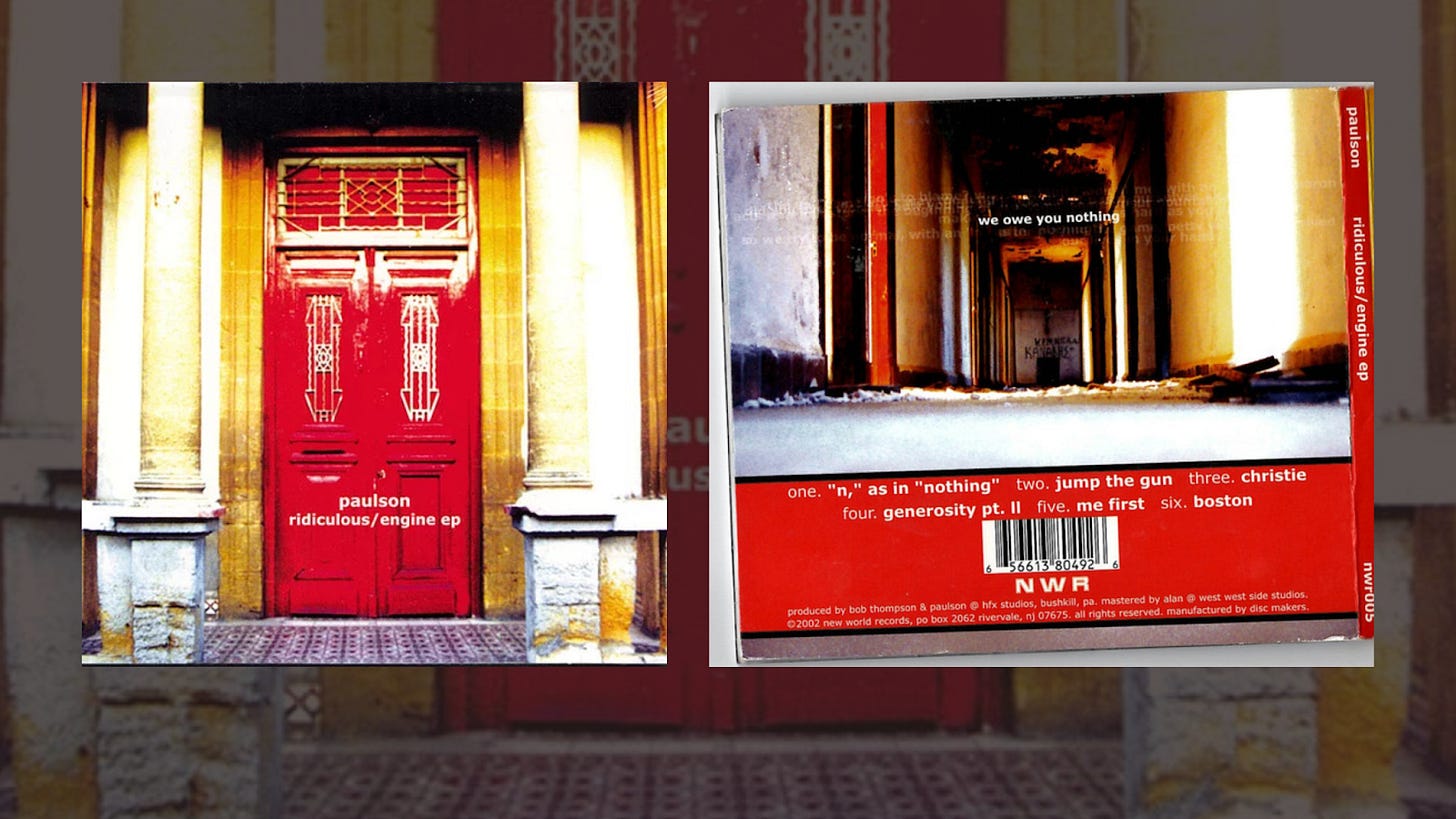
A Reunion Years in the Making
Paulson’s decision to reunite was by a serendipitous alignment of timing and opportunity. “We’re all still friends and hang out regularly,” Burton said. “We’d talked about playing again before, but half the band lives in California now, and some of us have kids, so it was tough to make work.” The spark came from Folly’s Arben, who had pitched joint shows in the past. This time, the stars aligned, and the band was an immediate “yes.” The nagging question—“Will anyone care?”—was answered resoundingly at Crossroads, where fans packed the sold-out venue, many wearing vintage merch from the band’s early tours.
The connection with Folly runs deep, with the two bands sharing some of Paulson’s earliest recorded (post-basement) shows. The two bands shared countless stages in the 2000s, creating a bond over moments like the chaotic Morgantown, West Virginia show where a canceled gig led to a bizarre joint set in a dirt-floored basement dive bar:
“Neither of us had any fans in West Virginia, but it was in a college town so we figured we might be able to make a few. We show up to the venue, and the stage is in the basement and the room has a dirt floor. There weren't many people there - and they weren't really interested in hearing us anyway - so we decided to play a joint set where Paulson would play a song, and at the end of it we'd do an extended jam and one by one trade off instruments with the Folly guys until their whole band was on stage. Then they'd play a Folly song, and at the end they'd jam and we'd trade off instruments one by one again. The people there HATED it and eventually they just asked us to stop playing altogether. I don't think we made any fans, but we drank for free, partied with some locals, and then hopped in the van for an overnight drive to the next city.”
Rediscovering the Fans and the Music
At Crossroads, Paulson curated a setlist of fan favorites, drawing heavily from their 2005 album All at Once, though fans later asked for more tracks from 2004’s Variations. “We were surprised people wanted more Variations songs,” Burton said. “Maybe we’ll play those next time.” The crowd’s energy floored the band, especially seeing fans who hadn’t caught them live since the Bush era. “I was blown away by the vintage tees—some from our first tours, 20 years old,” Burton marveled. “It felt incredible that people still cared.”
All at Once remains a cornerstone of Paulson’s legacy, a record that marked a shift from the eclectic, experimental Variations to a more intentional sound. “With Variations, we were all over the place, writing as we went,” Burton said. “For All at Once, we demoed in our attic, working out every detail before the studio.” Tracks like “Voids,” “Slow Down,” and “Window Frames” still resonate, effortlessly flowing when the band plays them live. “You feel the connection with your bandmates and the room’s energy,” he added.
Variations
Variations, Paulson’s debut, is a rough gem that embodies the screamo-infused emo sound dominating North Jersey in the early 2000s. Bands like Thursday and Senses Fail helped establish the template: angular, distorted guitars, vocals that shift from melodic to throat-tearing screams, and rhythms that switch between breakneck speed and introspective interludes. Variations perfectly preserves the sounds of the times, with tracks like “Convertible” where Laflotte’s voice soars over sharp, trebly guitar lines, only to fracture into desperate howls, all backed by the relentless rhythm section.
The album’s lo-fi production, born from writing-on-the-fly sessions, adds a gritty intimacy, capturing a hint of the live energy that made Paulson favorites of the New Brunswick basement scene. Songs like “The Hard Way” and "Optimism is for Stupid Idiots” weave in post-rock textures, hinting at Paulson’s multi-genre influences, but it’s the raw emotional core—heartbreak, alienation, and fleeting hope—that ties it so closely to the NJ scene.
All at Once
With All at Once, Paulson refined Variations’ scrappy chaos into a post-hardcore sound, leaning into pop songwriting and more prominent synths. This album would be right at home on the shelf next to Minus the Bear’s Menos El Oso. Recorded after meticulous attic demos, the album is a sonic evolution for the band: Smeen’s keyboards add atmospheric depth, as heard in the shimmering layers of “Voids” and “Window Frames,” while Logan and Jesse’s guitars carve out cleaner, more melodic hooks.
Tracks like “Calling on You” balance driving rhythms with pop-infused choruses, bringing to mind Motion City Soundtrack. “Programs” is an intricate composition that blends emotional intensity with layered instrumentation, think sharp, melodic guitars with a touch of dissonance over swelling synths and frenetic, syncopated beats in the vein of The Receiving End of Sirens.
Laflotte’s vocals, now more confident, encompass introspective whispers and powerful melodies, taking center stage on each track even without the screaming. Songs like “Slow Down,” a fan favorite that everyone still remembers the words to, showcase his range as a singer. The album’s polish can be compared to The Used’s pop-leaning era.
All at Once is more accessible than earlier records, which might invite criticism for softening the screamo edge, but was well received by fans, with one review at the time noting of the shift: “This is a style that really plays off their talents, a style in which every member of the band can fully contribute to a solid product; be it through guitars, vocals, keyboard, drum or bass, it all evens out in the songwriting process.”
Roots in the NJ Scene
Paulson’s story is inseparable from the vibrant Northern NJ scene of the 2000s, where they carved a niche alongside giants like Thursday, Midtown, and Senses Fail, as well as local acts like Madison, Outsmarting Simon, The Escape Engine, Royden, Stillwelle, Maverick, and many more.
Paulson was admired by peers for their genre-blending sound—not quite hardcore, not fully emo, but versatile enough to tour with metal, indie, and pop-punk acts. Burton’s Rolodex of scene friends, from Houston Calls (who have their own reunion in 2025, also at Crossroads) or Van Atta High to The Bronze Episode, highlights the camaraderie. “That shared experience of coming up then—it’s something you can’t replicate,” he said. “Unless you were there, you'll never really understand how special it was.”
Venues like School of Rock, where Paulson first sold out shows, and Krome hold cherished memories, but Alex clearly had special affection for the DIY spaces: “The Lyceum, Sussex Elks Lodge, New Brunswick basements—I can still picture them clear as day twenty years later.” The NJ scene has evolved since, with a recent revival seen in spots like The Blackbox at the Williams Center in Rutherford, Madison Community Arts Center and the amazing Embrace DIY (shout out for the upcoming Noise Protocol show), The Kill Shed, and Cheeks DIY (to name a few).
Advice and Legacy
Reflecting on their journey, Alex is proudest of the friends and fans who grew with them. “I don’t expect kids today to find our music, but knowing people will grow old with it, here and worldwide—that warms my heart.” Alex’s time with Paulson instilled a relentless work ethic, from booking tours to hustling pre-label days. “I was so hungry to play shows, I made it happen,” he said. “I carry that with me—nothing feels insurmountable.” For Burton, Paulson is a source of gratitude. “If nothing else happens, I’m forever thankful,” he said.
To young NJ bands, Burton’s advice was simple: “Do it for yourself first. Find love for the process.” He pointed to modern resources for navigating the business side, a luxury Paulson lacked. “Take advantage of that,” he said.
Most excitingly, Paulson’s future isn’t closed. They’ve discussed more shows in cities where they once had solid fanbases, a possible Variations vinyl release, an All at Once repress, or even new music. “It takes planning with half the band in California and life being complicated,” Burton said, “but we’re down to make it work.”
Paulson’s legacy in the emo and NJ scenes is one of authenticity and connection. They were never the biggest name, but their music and spirit endure in the hearts of those who packed basements and dive bars two decades ago—and those who showed up at Crossroads in 2024. As recent as Hellfest 2025, wearing a Paulson shirt to shows still gets positive reactions, and to reinforce Alex’s point, it’s almost always from the people in the bands.
If you’re in the New Jersey area, Noise Protocol has a show coming up! September 12th at the Madison Community Arts Center. Get your tickets while they’re still available!
Interested in more music from the early 2000s North Jersey scene? Check out our recent interview with Daniel Harris, drummer for Not Yer Baby and Emo Night Karaoke about his time in Jet Lag Gemini:
Jet Lag Gemini
In the mid-2000s, the music scene in Bergen County, New Jersey was a breeding ground for scrappy, heartfelt punk and emo bands playing in the dozens of VFW halls and local dives. Among the many future legends, Jet Lag Gemini stood out, a quartet of teenagers whose infectious energy, catchy hooks, and bold classic rock …



